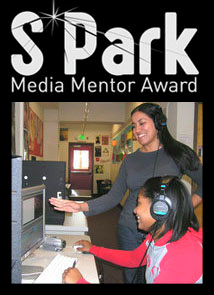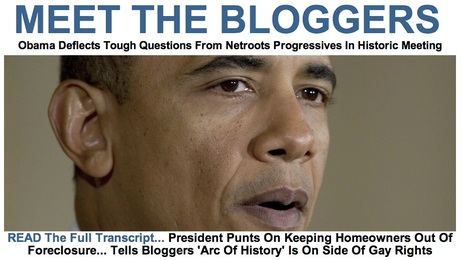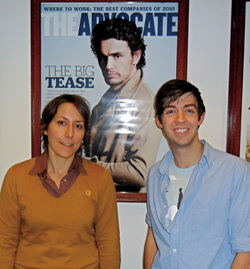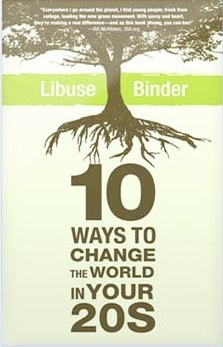A few weeks ago on 30 Rock, the Tina Fey-headed NBC show about the production of a Saturday Night Live-style variety show, corporate media was once again skewered. This time, Fey's Liz Lemon learned about "vertical integration" from Alec Baldwin's Jack Donaghey, an NBC higher-up who represents all that is unethical and self-interested in the land of TV. Here's the clip: 30 Rock's been making jokes like these since its start back in 2006. But for the first time, I was struck by just how badass Fey's jokes really are. Her show is owned by NBC, which is owned by GE, and yet her characters reveal the hypocrisies and corruption within Big Media in nearly every episode. There're the show's parody of product placement in this clip, and the widely-discussed " Kabletown-GE merger" in the show, an obvious send-up of Comcast swallowing NBC whole in the real world by merging with GE. 30 Rock ridiculed NBC's decision to program "Green Week" into its creative line-ups, and it made clever fun of the network's total mishandling of the Jay Leno-Conan O'Brien debacle from the spring. But how does 30 Rock have the freedom to blatantly criticize the corporate media and its own owner? Why is parody viewed as less damning than a serious news report about the dangers of corporate entanglements? GE has said that it's in on the joke, but the concepts that 30 Rock attacks are serious business practices and backroom deals that are actually happening in the real world. Why do they "get away" with the criticism? And it's not just 30 Rock. Jon Stewart and Stephen Colbert prove with their shows that they can critize big media even when Comedy Central is owned by Viacom. If these comedians are speaking out and exposing hypocrisy, then why aren't news stations and media analysts with the corporate media platforms? Can someone get Kenneth the Page to help out with this investigation?
 Wow. That was really all I could say when the credits started rolling on Josh Fox’s Gasland, a documentary that’s been making the rounds for the past few months about the perils of hydraulic fracturing, commonly known as “fracking.” The Park Center for Independent Media brought Fox and the film to Ithaca College on Tuesday, Nov. 3, and I was blown away by the powerful message and exceptional reporting and story-telling involved. I urge everyone to see this masterpiece of a documentary, even if you’ve never had any interest in fracking or the environment in general. It’s incredible to think that Fox, trained in the theatre arts, produced such winning content and stimulated such intriguing interviews about fracking all over the country. His team then weaves all of it together—from the personal implications for people with drill rigs for backyards, to the fire from the faucets, to the courtroom proceedings regarding the Halliburton loophole. It left me enraged, passionate, upset and fired up. One thing that surprised me about the film were the clips from mainstream media coverage sampled in Gasland; I was pleasantly surprised that these stories about burning, contaminated water and people getting sick in areas with drills were actually being covered by local news stations. The difference, of course, between them and people like Josh Fox, is that the news programs stopped at simply presenting the illnesses and asking “why.” Fox, meanwhile, has the time, consideration and independence to explore extremely deeply into the story. He gets the full story, makes a real impact, and raises imperative questions about the dangers of fracking and what the public can do to stop the method from becoming more widespread. Cheers to Gasland 2 and to hoping that the original affects significant, tangible change before then.
 Dharini Rasiah at Berkeley HS We don't typically lump high school students in the same category as the powerful independent bloggers who rule the Internet, but when you consider the two, there's more in common that you may think. In American public schools, the emphasis is on math and science and English and improving test scores, so media production skills, including television, film and journalism, are often left behind. Students and teachers with those passions, therefore, have to maintain an independent spirit, working against typically unsupportive administrations, superbly tight budgets, and a general lack of attention. Last week, on Oct. 25, Ithaca College's Park School of Communications honored teachers from across the country inspiring this independent spirit with its S'Park Media Mentor Awards, which celebrated four high school teachers and advisers of newspapers, television stations and yearbooks. See all of the S'Park award winners HERE. One of the honorees, Dharini Rasiah of Berkeley High School in California, talked about her individual struggles to help her television production students succeed in their passions: telling stories through video. Provided a limited budget, she discussed the reliance on low-grade cameras and a limited amount of class time. Despite the difficulties facing these teachers, the independent spirit is important to sustain. I loved that IC honored the people already doing that, encouraging them not to abandon that mission.
 HuffPost's Homepage 10/27 Suck on this, mainstream media. Today, President Obama made history by meeting with five heads or contributors of progressive blogs so that they could openly ask him any question they desired. He explained his rationale for the hosting the "summit" of sorts at the beginning of the roundtable, saying, "The blogosphere creates a conversation that encourages activism across our citizenry, and I think that's absolutely crucial. We benefit from the constructive feedback and criticism that we get, and it helps hold us accountable. But you guys obviously have also done a great job holding the mainstream press accountable, and that's really important to us."
The bloggers included Joe Sudbay of AMERICABlog, Duncan Black of Eschaton, Barbara Morril of DailyKos, Jon Amato of Crooks and Liars and Oliver Willis of his self-titled blog. I'm curious about how these five writers in particular were chosen and why some other important folks weren't included as well.
The full text transcript of the meeting is available on The Huffington Post, where issues like the economy, home foreclosures, immigration reform, allying and cooperating with Republicans, and gay marriage (which Obama still refuses to say he supports) are discussed. Strangely, none of the bloggers mentioned WikiLeaks—or any foreign policy for that matter—or asked for Obama's views on how the leaks will impact the war.
Of course, what's most interesting to me are the LGBT-related questions from Subday (transcript of these questions available here), who probed about "Don't Ask, Don't Tell" and marriage equality. This meeting makes Subday the first member of the LGBT media/blogosphere to ask Obama any questions about his stances on these issues. When Subday inquired about the disappointment within the gay community over the President's lack of action, Obama responded, "We have been as vocal, as supportive of the LGBT community as any President in history [which, as an editorial aside, is not impressive since no president as ever really championed gay rights]. I've appointed more openly gay people to more positions in this government than any President in history...I'll be honest with you, I don't think that the disillusionment is justified."
Regardless of the sometimes-evasive responses to questions like the marriage equality one, the meeting brings new legitimacy to the world of blogging that has dominated indy media for the past several years. And if Obama's "Appreciate it. We'll do it again," conclusion means anything, it's that he truly recognizes the importance of independent media and bloggers and is willing to dialogue with them to reach conclusions on important issues.
 I recently spent a day with Julie Bolcer of The Advocate, the former print magazine behemoth of LGBT journalism. The day of "job shadowing" Bolcer to get a glimpse into the life of an Advocate reporter gave me some insight into the merits of keeping it local with your news coverage.
The Advocate, while based in Los Angeles, staffs Bolcer as their sole New York City correspondent; she contributes 5-6 pieces per day to the online edition, advocate.com. Her contributions play like a beat report, with Gay New York City as her beat. She writes about LGBT events in the city and keeps close tabs on political races.
Bolcer's got the city pretty much covered in terms of LGBT news. She's constantly in touch with the NYC leaders of the movement, she's always meeting new people and giving out her card and collecting information, and she's always in-the-know about the important stuff going.
And while that's admirable of The Advocate and Bolcer, it also raises an important question: If it takes the entire workweek of a one reporter to cover one city, what's happening in the rest of the country, aside from the correspondent-assigned LA and DC, in terms of news coverage? Is their gay news going undiscussed? Bolcer told me that The Advocate has a wealth of sources and freelancers who could contribute stories out of their respective corners of the States, but it's undeniable that the stories coming out of these areas, by virtue of not having an officially-assigned "beat reporter," will often go unwritten.
 Some of the most important faces in game-changing, independent media today - Amy Goodman, Arianna Huffington, Matt Drudge - are well over 40 years old. But to make an impact in the world, you don't need to have 40 - or in Huffington's case, 60 - years of life and career experience under your belt. That's what Libuse Binder has proven with 10 Ways to Change the World in Your 20s, which details some steps that young people can take to leave their mark on the world. Some, like registering to vote and casting that ballot, are easy. Others, like recognizing a problem area in a community, brainstorming a potential solution, and implementing that solution to get at the root of the issue, can be more difficult. But all of the steps, Binder said at a speaking engagement at Ithaca College on Tuesday, Oct. 26, are possible.
Binder's philosophy, although she applies it largely to changing the world through working with non-profits, lobbying for environmental measures and raising money to fight for the causes that we believe in, is directly parallel to the mission of independent media sources. Find something you're passionate about - whether it's climate change (like IC alum Kate Sheppard, who works for Mother Jones), LGBT activism (like - and no, I won't stop heralding her incredible work - Pam Spaulding of Pam's House Blend) or simply truth-telling and accuracy in general (like Glenn Greenwald or even the student journalists at News 21) - educate yourself on that topic, and then show people why they too should care.
In her speech, Binder didn't specifically discuss much about how students involved with media can leave their impact, although she did remark on the world-changing potential of films, which, "if done well, can do it in an hour and a half." Her website, however, tenways.org, includes a comprehensive database of businesses and organizations that are making a positive difference by sticking to their values and pushing what they believe in. On this list are indy publications like The Huffington Post, E/The Environmental Magazine, TreeHugger, The Daily Beast, Grist and blog search engine Technorati.
Curiously, corporate mega-giants like The Washington Post, Fox News, MSNBC, CNN, The Wall Street Journal and The New York Times were overlooked by Binder and the tenways.org team. The company that publishes Binder's own book - Sourcebooks, Inc. - is itself an independent entity, demonstrating one way that Binder is resolute in practicing what she preaches. How refreshing.
 I'm continually impressed by Glenn Greenwald's blog on Salon.com. His posts are lengthy, sure, but his writing is air-tight, and his dilligent updates dispel any potential confusion about his pieces. One of his latest posts, about NPR's dismissal of Juan Williams after he made clearly bigoted statements about Muslims, is particularly interesting. There are two parts: Part ONE and Part TWO.
Williams, who works for NPR but has become something of the resident liberal on Fox News, said the following on The O'Reilly Factor: - Well, actually, I hate to say this to you because I don't want to get your ego going. But I think you're right. I think, look, political correctness can lead to some kind of paralysis where you don't address reality. I mean, look, Bill, I'm not a bigot. You know the kind of books I've written about the civil rights movement in this country. But when I get on the plane, I got to tell you, if I see people who are in Muslim garb and I think, you know, they are identifying themselves first and foremost as Muslims, I get worried. I get nervous.
NPR then fired him, saying in a statement that his comments were "inconsistent with editorial practices and standards." Greenwald's two subsequent blog posts combat the screams from right-wingers trying to position Williams as a "free speech martyr." Greenwald asks where these cries were when other, more liberal journalists who weren't denouncing Islam were when they were canned for being outspoken. While he does not say that he thinks NPR necessarily should have fired Williams, he does argue that if these critics of NPR are condemning Williams' firing, championing it as a censorship crusade, they should be equally critical of the firings of people like Octavia Nasr and Helen Thomas. He says, "The only thing worse than a bad standard is a bad standard that is applied unequally and discriminately."
We can learn a lot from these two individual posts from Greenwald: - It's important to engage your readers, capitalizing on divisive stories, picking a stance and defending. It gets readers interacting and talking. Just look at the 967 comments that the second posts had garnered at last look.
- Updates (clearly noted as such) can easily be used to respond to comments and criticisms and praises.
- Link to other smart people who've written smart things about the topic.
- Steer the conversation away from the obvious (in this case, whether NPR should have fired Wiliams in the first place) and bring something new to the debate.
We can all rattle off a few blogs that have claimed their space in the cybersphere as some of the most important indy blogs out there: there's HuffPost, Talking Points Memo, Glenn Greenwald on Salon, and, of course, I Can Has Cheezburger? Of course, none of those are LGBT-specific, so, since I make it my goal to be a broken record by covering LGBT-focused independent media, I've highlighted the Top 5 movers and shakers in the world of LGBT journalism in this slideshow. (See the full blog descriptions below the slideshow.)
- Pam's House Blend: (SITE) It's not easy establishing your website as one of the "go-to" sources for information and worthwhile commentary about issues related to all four letters of the LGBT acronym. Whereas many LGBT blogs focus primarily on gay men, Pam Spaulding's site, which was launched during the 2004 presidential election, gives equal page service to each of these sexual minorities. Her piece is impressive because of the sheer volume that she produces; with few other contributors and a full time job, Spaulding works hard at nights, on weekends and on lunch breaks to keep her readers as up-to-date as possible. That's what set her apart from the rest of the LGBT blogosphere and made hers one of only two gay blogs that were awarded credentials for the Democratic National Convention in 2008. She's got an incredibly devoted readership, who keep her in business; they clearly know how to locate her PayPal "Donate" button, which, in addition to some unobtrusive sidebar advertising, is her primary revenue stream.
- Towleroad: (SITE) Easily one of the most popular, trafficked gay sites, this six-year-old "site with homosexual tendencies" is headed almost exclusively by Andy Towle, a gay man who still owns the site. Towle stays away from much commentary, choosing instead to publish the news and link to other websites. His content's not exclusively gay; some of his posts are completely irrelevant to the LGBT cause (especially those in his "briefs" section), but those that are relevant are interesting and new. Towleroad is almost undeniably geared toward the wealthy, white gay men demographic (his coverage typically ignores trans people, as well as lesbians, and in 2008, 52% of the readers earned over $75,000 and 40% earned over $100,000), a fact that's earned him some criticism. The site is not incredibly politics-based, focusing instead on pop culture, media trends, technology and music. It relies on advertising and some donations for support.
- The Bilerico Project: (SITE) I've already published extensively about The Bilerico Project and its founder, Bil Browning, but in case you don't have time for 1,200 words...What began as a project based out of Indiana has exploded into a national group blog in the vein of The Huffington Post, with experts from every facet of the gay political spectrum contributing pieces about the LGBT cause. Subtitled "Daily experiments in LGBTQ," this site, which recently moved to be based out of Washington, D.C., is proving every day with its excellent, mainly-political, posts that, as managing editor Alex Blaze puts it, "Not everything Queer is marriage, martinis and Madonna." True to HuffPost's philosophy, writers are not compensated. The editorial board's salaries are earned through advertising, and Browning, who publishes the most on the site, is compensated through a grant from The Arcus Foundation. - AMERICAblog Gay: (SITE) As a nearly-as-frequented sister site to the main, overall AMERICAblog, this gay blog, led by attorney and gay rights activist John Aravosis starting in 2004, does extensive political reporting and analysis on gay issues. Making terrific use of quoting and referencing other publications or issues of the day, this is LGBT Journalism at its smartest and finest. It's not as partisan as some other sites, including Bilerico or Joe.My.God., but it advocates where Aravosis feels appropriate. It is, after all, a gay blog, which, according to its mission on its Facebook page, is designed to "defend good, fight evil, and sometimes slap good around to stop it from doing evil." It's funded with help from readers; a "Please Support AMERICAblog" application, with options for one-time and recurring monthly donations, is featured on each page of the site. - Joe.My.God: (SITE) It's crazy that this site, maintained exclusively by the New York-based Joe Jervis, has become so incredibly popular, with thousands and thousands of readers visiting every hour, while still being hosted on a blogspot.com free domain name. Supported by infrequent ads, Jervis' blog is one of the more personality-driven pieces in this slideshow. He's great at using Talking Points Memo methods to enhance his resource; in this Village Voice article, Jervis describes how he called on his readers to deduce that some "All Faggots Must Die" comments on his site were coming from the offices of Senator Saxby Chambliss (R-Georgia). Super interesting, original content.(Note: The cover graphic has been manipulated from a photo that originally appeared HERE)
Special Extended Post: Exploring a key figure in the historic dissident press
In 1950s America, gay rights issues were hardly ever discussed in the mainstream media. Homosexuality was not viewed as a viable sexuality, and the organized LGBT rights movement was just beginning—the first major gay organization, the Mattachine Society, was only founded in 1950. But as the decade progressed, it became clear that each of the letters in the LGBT acronym was not being championed equally. Gay men were quicker to organize and far more vocal, promulgating their message more effectively and more widespread than gay women. Gay men had larger organizations and a larger chunk of the dissident press. It sounds silly, but if lesbians wanted any media attention at all, they had to start their own dissident newspapers in order to dissent from the already-existing gay dissident press, whose emphasis was almost wholly on gay men.
One of the most important of these publications was The Ladder, a monthly magazine that openly discussed issues facing lesbians in the United States.
The Ladder began as many dissident publications did; a group of people joined together, rallying behind a common cause that they were passionate about. That cause sparked the foundation of an organization, and that organization sparked the release of a publication so that the group could more effectively disseminate its message. (MORE)
By now, anyone with even minute interest in the news has heard about WikiLeaks' unveiling of nearly 400,000 secret field reports from the Iraq War Logs. It's a monumental moment, because, as Slate points out in its excellent summary of the reports and the press coverage from mainstream media, although much of the news itself isn't shocking, the leak makes the Iraq War the most documented in history.
The Guardian and The New York Times have been doing some great coverage of the documents, and independent, alternative sources are sure to be scouring the documents with even finer-toothed combs in the coming days, but for now, we should all be reveling in what this means for WikiLeaks, an independent website devoted to blowing any whistle it can. It's officially capitalized on its potential and proved itself as a veritable, hugely important cyber source.
It will be exciting to see how the media, both mainstream and independent, deal with the WikiLeaks reports. My classmate Aaron Edwards has already detailed on his blog the importance of these other sources, especially the mainstream, in ensuring that the leak has a significant result. I'd love to see these sources dissecting the information presented within them more thoroughly and following up on some of the most troubling aspects of the logs, including the clear evidence that U.S. military officials tended to disregard hundreds of reports of regular, persistent torture and direct abuse by Iraq security forces. Now that the whistle's been blown, it's time to see the impact of what's been disseminated to the world.
|






